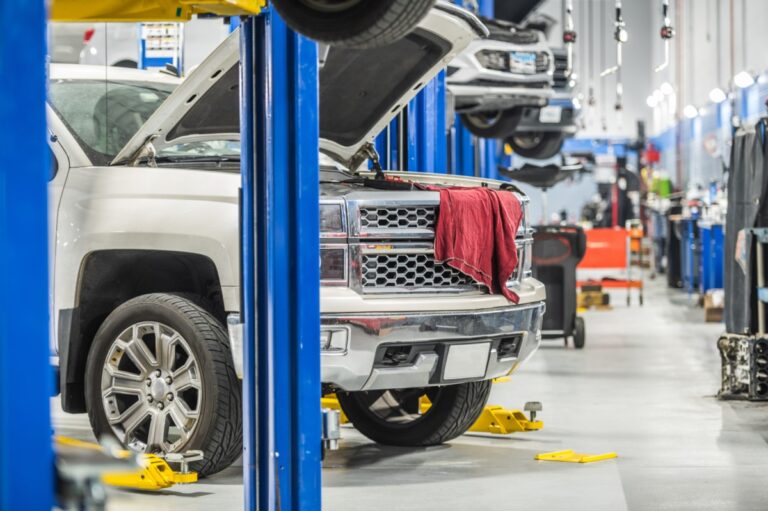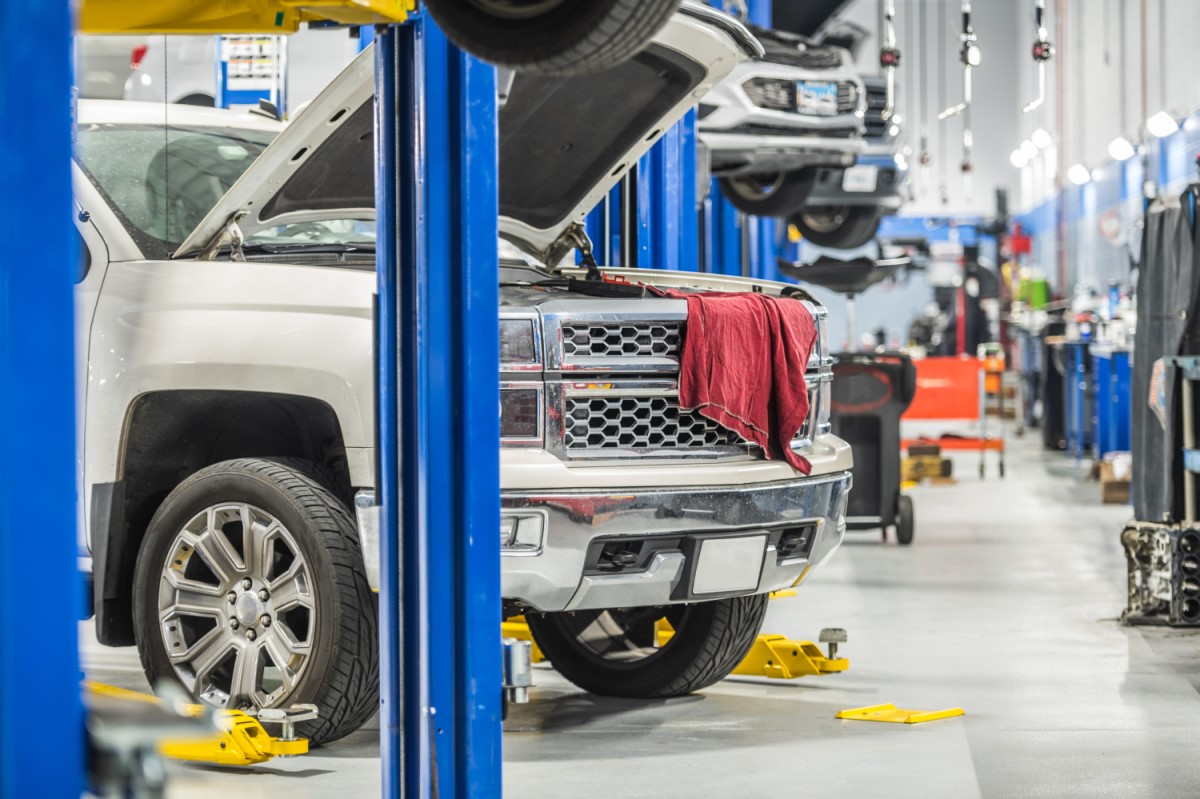How do you find a good mechanic?
Word of mouth and recommendations from friends and family are the top two ways, but searching online is a close third.
Still, it’s a good idea to do more than ask Siri or Google for the best car repair shop near you. Do your research. Read reviews, both positive and negative. Check out their credentials – how long they’ve been around, their certifications, before/after photos. See if they offer free estimates and quotes. Then you can make the best choice for yourself.
But now that you’ve decided, you have one more big question to ask yourself: How would I know if this mechanic is conning or ripping me off?
So to help you make the right decision, here are the 20 most common red flags from The Car Husband that should raise an eyebrow.
1. Routine Maintenance Uncovers Mysterious Problems
With dishonest mechanics and repair shops, you’re more likely to get scammed or price gouged on work that you didn’t inquire about.
For instance, if you bring your vehicle in for an oil change, a bad mechanic might find broken ball joints that need to be replaced, pushing your repair bill up by hundreds of dollars.
Now, that’s not to say that the new problem is falsified in an effort to scam you out of more money. However, in these instances, it’s best to ask your mechanic to show you the problem before agreeing to any additional work.
If it’s not dangerous to drive, you can also bring your vehicle to another shop to assess the damage and confirm or deny the existence of those broken ball joints (just don’t mention that issue to the second auto repair center).
2. They Won’t Show You the Problem or Broken Part
That brings us to the next red flag: the mechanic is unwilling to show you the issue up close. In many instances, they’re either hiding something, don’t really understand what they’re doing, or think you won’t understand the issue just by sight. Steer clear of these types of car repair centers.
A good mechanic will gladly bring you to the back of the service area and show you the problem, while a great mechanic will show you the problem and explain what needs to be done in layman’s terms.
By the end of that explanation, if you understand why the repairs are necessary, you’re probably dealing with an honest mechanic.
3. They Won’t Return Old, Damaged Parts to You
Legally, you own all components and parts in your car, even if they’re cracked or broken beyond repair. Some quality mechanics will provide you with all removed or replaced parts without asking; others will simply toss or recycle them once the work is completed.
So, before you sign off on or confirm any repairs, be sure to request all removed parts are handed over to you, as well as the containers and packaging that accompanied the new components. (This includes motor oil bottles and oil filter boxes.)
If they refuse for any reason, that’s a sign that you should bring your vehicle to another car service center.
4. They Get Angry at Your Requests
If you request old replacement parts or a walkthrough of how work will be performed, the mechanic or auto service technician shouldn’t snap back. While it’s not ideal, showing customers problem areas is part of the job, and any sort of vindictive or spiteful response shouldn’t be warranted nor tolerated.
Go somewhere else – the last thing you want to do is leave your car with an unprofessional and potentially malicious mechanic who might treat it poorly.
5. Some “Quick Lube” Places are Not to be Trusted
We don’t like bashing auto service chains, but some of those “quick lube” shops have been proven to be dishonest after garnering thousands of complaints from unsatisfied customers.
Even some old employees have written horror stories about these places’ unethical practices (e.g. the story of a boss selling a customer her own car battery.)
What are some of the common scams the quick lube places say to rip you off?
6. “Your motor oil is low.”
Unless you’re leaking oil, you’re probably not going to have an issue with low oil levels. Now, dirty oil is another story…
7. “You need a new air filter.”
Customers have complained that they were charged for and to install a new air filter, but it was never installed.
8. “You need an engine or transmission flush.”
In many cases, engine flushes aren’t recommended by auto manufacturers. This is just an upsell for no reason.
9. “We only accept cash.”
This tactic eliminates a paper trail, so you have no legal recourse if you discover they’ve conned you.
10. “A fuel cleaning will improve your mpg.”
In very, very rare instances is a fuel cleaning necessary. In fact, like engine flushes, most manufacturers do not condone fuel cleaning.
11. “Your serpentine belt needs to be replaced.”
Even if your belts are pristine, some mechanics will rip you off by recommending you replace them with new ones.
12. “It’s time for a new battery.”
Car battery tests can be manipulated to justify a car battery replacement. Don’t fall for it. Ask the mechanic to test the battery as you watch — or do it yourself with a multimeter.
13. “Your freon is low.”
The only way to see freon levels is to run a full a/c diagnostic check. If that wasn’t performed, the mechanic is lying about your freon.
14. “Look at this!”
If they show you a part that looks broken, be certain that it’s actually from your car. Ask them to show you where they took it from to confirm it’s been removed.
Again, not all oil change franchises are attempting to scam you or rip you off. But the potential is there, so beware of any corner-cutting tactics if you do decide to bring your vehicle to one.
15. No Written Estimate is Provided
All parts and labor should be provided to you as a written estimate, full stop.
So do not do handshake deals or settle for a verbal agreement – get everything in writing. Written consent by both parties ensures you have some legal recourse if the mechanic ruins your car or tries to charge you thousands more for work you never approved.
16. Repairs are Performed Without First Confirming with You
Every single repair and replacement part should be confirmed by you. If your mechanic is going to perform work outside of the scope of the original estimate, they should be calling you before picking up a wrench.
17. They Use Cheap Auto Parts, Not OEM Parts
Cheap car parts are great – if you don’t care about durability, reliability, or dependability.
Most good auto service centers will use Original Equipment Manufacturer (OEM) auto parts and accessories to guarantee like-new operation. Plus, OEM parts for cars come with longer warranties.
18. They Don’t Offer Alternative Solutions
In life, there’s very rarely just one solution to a problem. This is true in some cases of car repair, as well.
While it’s surely necessary to replace broken car parts, you may have several options available to you. A good mechanic will give you more than one solution – perhaps even a range of solutions, from permanent repairs to cheap replacements to quick (i.e. cheap) fixes, all determined by your budget, the value of your vehicle, and potential driving dangers and safety concerns.
19. Overly Long Wait Times
Although there are valid reasons for delays, if your mechanic keeps pushing your pick-up date back, you should be curiously cautious.
Perhaps there were shipment issues with replacement parts, or the head mechanic came down with the flu – perfectly understandable.
However, they could have done damage to your car while repairing it, and now they’re back-pedaling to try and correct those mistakes under the radar. It’s a good idea to ask what the hold-up is.
20. They’re Not Licensed
Any good auto mechanic or car service technician will be trained, educated, and licensed or certified to perform repairs, either generally or on a specific make.
So find only auto mechanics who are trained on new techniques, systems, and practices, and ASE licensed. You deserve the best mechanics to work for you, don’t you?.
For more tips like these, read our blog.









